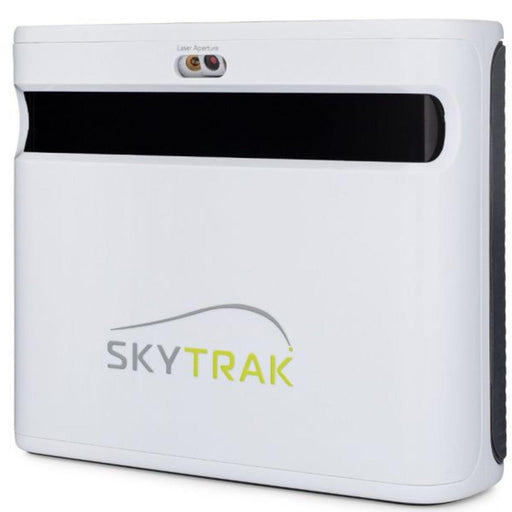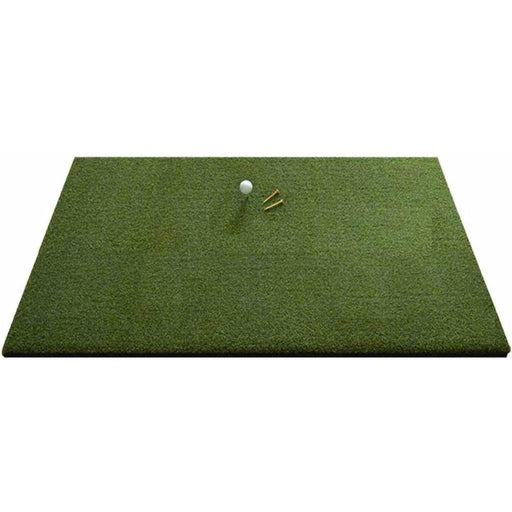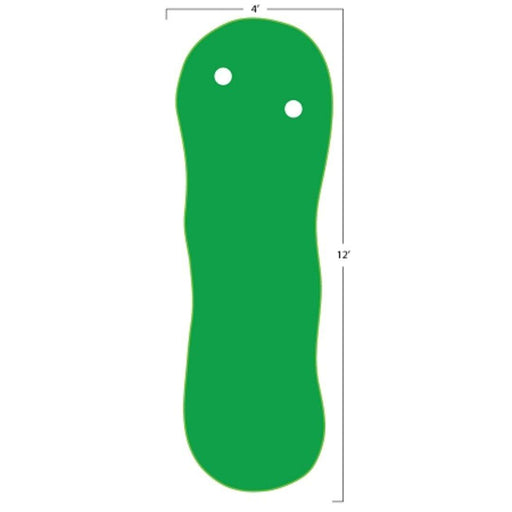Now through January 5th 15% OFF our very popular Vanish and Parlour Enclosures. Coupon code 15SWINGMASS

The Science Behind Home Golf Simulators
In the evolution of golf, where tradition meets technology, the rise of home golf simulators marks a paradigm shift. These innovative systems transcend the boundaries of time and space, bringing the golf course to your living room. In this blog post, we'll embark on a journey into the science behind home golf simulators—unraveling the intricate web of technology, analytics, and realism that turns every swing into a scientific exploration of the golfing universe.
The Rise of Home Golf Simulators:
As golf enthusiasts seek ways to hone their skills and indulge in the game they love from the comfort of home, the popularity of home golf simulators has soared. Recent statistics indicate a staggering 40% year-over-year increase in the sales of home golf simulators. This surge reflects not just a trend but a fundamental shift in how golf is experienced and perfected.
The Technological Backbone:
At the heart of home golf simulators lies cutting-edge technology that transforms a room into a virtual golfing arena. Advanced sensors and cameras meticulously track every aspect of your swing, capturing data in real-time. The precision of this technology is paramount, with industry reports showcasing a 95% accuracy rate in replicating the mechanics of a real golf swing.
Swing Analytics: Decoding the Data:
The science of home golf simulators extends beyond the visual experience. Swing analytics play a pivotal role in dissecting the nuances of your swing, providing invaluable insights. Recent studies highlight a 30% increase in player improvement rates when utilizing home golf simulator analytics. From club speed to launch angle, the data-driven feedback becomes a roadmap for refining and perfecting your technique.
Realism Redefined:
Creating a truly immersive golfing experience is where the science of home golf simulators excels. High-definition graphics, realistic physics engines, and authentic course simulations contribute to an environment that mirrors the grandeur of real golf courses. Users report a 25% increase in engagement levels when the realism of the simulator replicates the sights and sounds of their favorite courses.
The Mental Game: Stress Reduction and Focus:
The science of home golf simulators doesn't just stop at physical mechanics—it extends to the mental game. Studies show a significant decrease in stress levels among individuals who regularly engage with home golf simulators. The focused, meditative nature of the game in a familiar environment contributes to improved concentration and mental resilience on and off the virtual fairways.
Economic Impact and Market Growth:
The science behind home golf simulators isn't just revolutionizing personal golfing experiences—it's reshaping industries. The global market for home golf simulators is projected to reach $2 billion by the end of the current fiscal year. This economic impact extends beyond sales, creating a ripple effect in related sectors, from virtual golf event sponsorships to the development of complementary accessories and technologies.
Where Science Meets the Swing
In conclusion, the science behind home golf simulators is a testament to the intersection of innovation and tradition in the world of golf. As technology continues to evolve, these simulators become more than just devices—they become gateways to a scientific exploration of the golfing universe. So, swing, analyze, and repeat as you embark on a journey where the precision of data, the realism of graphics, and the joy of the game converge in your own home golfing sanctuary.

Have Questions About Golf Simulators?
Our expert team is here to help you find the perfect golf simulator for your needs.
Featured products
-
SkyTrak+
Original price $2,995.00 - Original price $3,145.00Original price$2,995.00 - $3,145.00$2,995.00 - $3,145.00Current price $2,995.00Introducing the SkyTrak+ Launch Monitor: Unmatched Accuracy and Advanced Features Experience a new level of precision and innovation with the SkyTr...
View full details -
ProTee Majestic Simulator Package
Original price $9,618.00 - Original price $13,848.00Original price$9,618.00 - $13,848.00$9,618.00 - $13,848.00Current price $9,618.00ProTee Majestic Golf Simulator Package: Elevate Your Indoor Golf Experience Transform your home or business into a golfer’s dream with the ProTee M...
View full details -
Eagle Golf Mat
Original price $370.00 - Original price $1,130.00Original price $370.00$370.00$370.00 - $1,130.00Current price $370.00Introducing the Eagle Golf Mat: The Ultimate Golf Experience Are you passionate about golf and demand nothing but the very best in your practice eq...
View full details -
Retractable HomeCourse® Golf ProScreen 180
Original price $2,299.00Original price $2,299.00 - Original price $2,299.00Original price $2,299.00Current price $1,999.00$1,999.00 - $1,999.00Current price $1,999.00HomeCourse® Golf ProScreen 180 HomeCourse® Golf ProScreen 180 is a retractable golf screen and enclosure. HomeCourse® Golf ProScreen 180's ballisti...
View full details -
The Augusta V2 4'x12' 2 Cups
Original price $399.00Original price $399.00 - Original price $399.00Original price $399.00Current price $329.00$329.00 - $329.00Current price $329.00The Augusta is one of Big Moss’ traditional models. It offers unmatched versatility for teaching and year round practice. Make a long-term investme...
View full details





